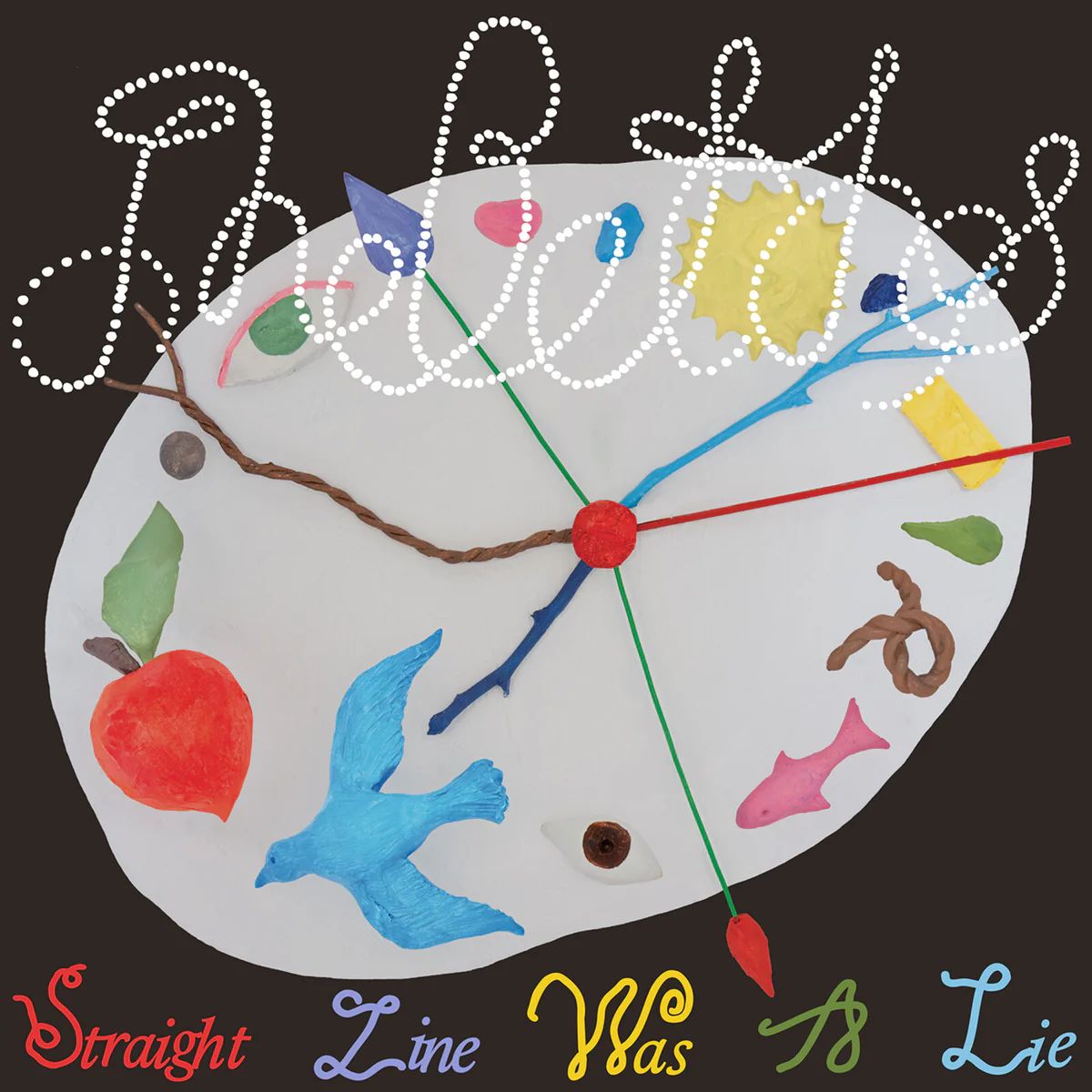Label: ANTI-
Released: 29th August 2025
The Beths have always written songs that race ahead, neat and aerodynamic, as if forward momentum itself were the point. Their fourth album, ‘Straight Line Was a Lie’, opens by undoing that instinct. Instead of planting a flag, it circles back on itself, acknowledging that improvement isn’t linear, that the old story of progress was never true. From the start, ‘Straight Line Was a Lie’ admits the floor is uneven, then insists on walking it anyway.
Elizabeth Stokes wrote much of this record while reckoning with the fallout of illness and its treatments. A diagnosis of Graves’ disease left her body battered; antidepressants helped but came with their own complications. She found herself steadier, but dulled — days felt fine, yet the things she once loved no longer sparked. That estrangement from joy runs through these songs, not dramatised into breakdown or smoothed into triumph, but left in its strange, suspended state.
What makes the record fascinating is how the band wrap that unease in arrangements as bright as anything they’ve cut. ‘No Joy’ sounds, on the surface, like pure Beths: brisk guitars, a chorus that barrels forward. Listen closer, and the subject is absence itself, the hollowed-out calm of anhedonia. The dissonance is deliberate. A song about not feeling arrives as one of their most immediate, daring the listener to supply the emotion that its narrator cannot.
Elsewhere, the band turn to the body as proof of presence. ‘Metal’ is a hymn to chemistry and pulse, tracing life back to minerals and cells. Where ‘No Joy’ stares at the void, it also insists on the sheer mechanics of existence. Taken together, they form a diptych: numbness on one side, survival on the other, both set to melodies that refuse to flag.
The record’s core is quieter, but no less forceful. ‘Mosquitoes’ revisits a creek Stokes grew up with in Auckland, transformed after floods ripped away its bridges. A meditation on the futility of holding anything still,, == ut flows from delicate to swelling, less like indie rock bombast and more like the water surging back. ‘Mother, Pray for Me’ pivots to intimacy, sketching the distance between Stokes and her mother: cultural, generational, emotional. It’s hushed, almost lullaby-like, but refuses easy resolution.
Later, the scope widens again. ‘Take’ piles images into a storm of consumption and erasure, a song about overwhelming yourself until nothing is left. ‘Ark of the Covenant’ frames fear as something ancient and insistent, not holy but burdensome. Both show the band stretching lyrically further than before, but never losing their sense of pace; guitars and drums keep the songs taut, choruses cut quickly.
The emotional spectrum here is wider than on any previous Beths record. ‘Roundabout’ might be their most unabashedly affectionate moment, chaotic joy framed by the image of looping traffic. By the time the album closes with ‘Best Laid Plans’, the mood has shifted to weary surrender. Instead of soaring skywards, the final chorus yields. It ends not with triumph but with a sigh that somehow feels earned.
Production, as ever, is the quiet weapon. Jonathan Pearce ensures the band sound both razor-sharp and lived-in: guitars cut, bass underpins, drums drive forward, harmonies are threaded through without gloss. The mix leaves air around the arrangements, so even at full volume, there’s space for the unease that underpins these songs.
This is not a record of neat answers. It’s one of persistence. ‘Straight Line Was a Lie’ confronts illness, numbness, grief and distance, then sets them to melodies that still shine. The trick isn’t that the band have changed shape entirely; it’s that their pop instincts now carry heavier freight.
The Beths haven’t abandoned joy, but they no longer pretend it arrives on demand. These songs recognise that life is uneven, that progress circles back, that places and people don’t stay as you left them. And in putting that honesty into songs that still stick after one listen, they’ve made their most mature, most incisive album yet. Not reinvention. Continuance. The long way round, mapped with clarity.

Leave a Reply